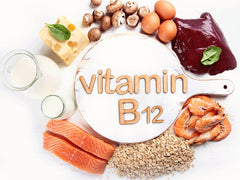Lapsurgery.com.au, What Vitamins Are Suitable for Sleeve Gastrectomy – Sleeve gastrectomy, a surgical procedure to aid weight loss, involves reducing the size of the stomach, limiting the amount of food it can hold. While this procedure can be effective in helping individuals achieve significant weight loss and improve their overall health, it also requires careful attention to nutrition, particularly vitamin intake. Here are the essential vitamins that are suitable for individuals who have undergone sleeve gastrectomy:
Vitamin B12:

This vitamin is crucial for nerve function, red blood cell production, and DNA synthesis. After sleeve gastrectomy, the stomach’s reduced size can limit the absorption of vitamin B12, leading to deficiencies. Therefore, it is often recommended to take vitamin B12 supplements or receive injections to maintain adequate levels.
Vitamin D:
Responsible for bone health, immune function, and overall well-being, vitamin D absorption may be compromised following sleeve gastrectomy due to changes in the digestive tract. Supplementation or increased intake of vitamin D-rich foods such as fortified dairy products, fatty fish, and eggs is essential to prevent deficiencies.
Calcium:
Sleeve gastrectomy can affect calcium absorption, increasing the risk of bone disorders like osteoporosis. Adequate calcium intake, either through supplements or dietary sources like dairy products, leafy greens, and fortified foods, is vital to support bone health and prevent deficiencies.
Iron:
Iron deficiency is common after sleeve gastrectomy, leading to anemia and fatigue. Iron supplements or consumption of iron-rich foods such as lean meats, beans, lentils, and fortified cereals can help maintain optimal iron levels and prevent complications.
Folate (Vitamin B9):
Essential for cell division and DNA synthesis, folate is crucial for overall health. Sleeve gastrectomy can impair folate absorption, necessitating supplementation or increased consumption of folate-rich foods such as leafy greens, citrus fruits, and legumes.
Vitamin A:
Important for vision, immune function, and skin health, vitamin A absorption may be reduced after sleeve gastrectomy. Including vitamin A-rich foods like sweet potatoes, carrots, spinach, and liver in the diet can help meet the body’s needs.
Vitamin E:
As an antioxidant, vitamin E plays a role in protecting cells from damage and supporting immune function. Supplementing with vitamin E or consuming foods such as nuts, seeds, and vegetable oils can help prevent deficiencies post-surgery.
Closing
In addition to these vitamins, individuals who have undergone sleeve gastrectomy should work closely with healthcare professionals, such as dietitians or surgeons, to monitor their nutritional status regularly and adjust their supplement regimen as needed. Adopting a balanced diet rich in nutrient-dense foods is crucial for supporting overall health and well-being after sleeve gastrectomy.

